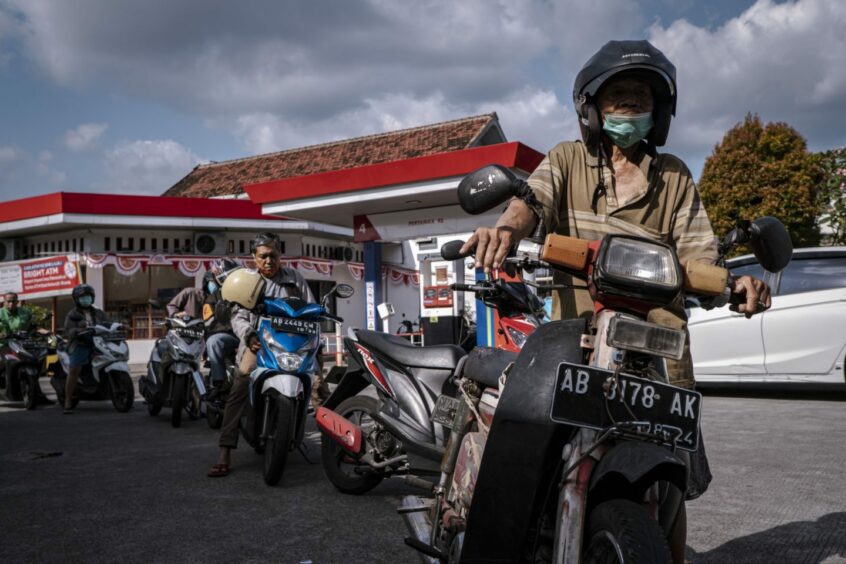
Indonesia is bracing for protests this week after the government raised fuel prices by more than 30% to curb soaring subsidies, as higher costs hit households and small businesses across the archipelago.
Tens of thousands of workers are set to demonstrate in Jakarta on Tuesday, with trade unions saying the fuel price increase will diminish purchasing power at a time when wages are stagnant and inflation is soaring.
President Joko Widodo, popularly known as Jokowi, held off the announcement for weeks while small-scale protests erupted. The government finally bit the bullet on Saturday and raised subsidised fuel prices with Jokowi saying the move was the “last option” available for his administration.
Why is Indonesia raising fuel prices?
Indonesia wants to cut its ballooning subsidies. But even with retail price hikes, energy subsidies are still going to increase by 137 trillion rupiah to 151 trillion rupiah ($9.2 billion to $10 billion), Finance Minister Sri Mulyani Indrawati said at the Saturday briefing. It is unclear how the government will raise the additional funds, which comes on top of this year’s budget of a record 500 trillion rupiah in energy subsidies set to run out by October. Jokowi has said that to keep giving out subsidies is unsustainable and on Saturday he argued for a price hike, saying more than 70% of fuel subsidies are used by wealthier people who own cars.
How will this affect the economy and budget?
The fuel price hike would worsen food and energy inflation in the wake of Russia’s war in Ukraine. And it will upend plans to bring inflation down below 4% next year with economists already forecasting that higher fuel prices could push inflation past 7% this year. This situation could force the central bank — which last month unexpectedly raised borrowing costs for the first time since 2018 — to impose more rate hikes and slow economic growth. For the government, it wants to consolidate its finances and bring the deficit under the legal limit of 3% of gross domestic product in 2023.
Who will be affected the most?
The move will squeeze the finances of the lower and middle income households. They’re already dealing with rising inflation, which jumped the most in seven years in July and stayed elevated in August. Trade unions have argued that inflation is eating into wages that have remained stagnant for years while Indonesia raised the average minimum wage by 1.09% for this year. To avert a fallout from the fuel price hike, Indonesia is giving an additional 24.17 trillion rupiah aid package with more than 20 million families receiving monthly cash handouts.
Why is this politically sensitive?
Average fuel consumption in Indonesia is 13% above the global average, thanks to the over 130 million motor vehicles zipping around in congested cities. Indonesia is the largest motor vehicle market in Southeast Asia where the aspiration to own a car remains high. Any fuel price hike will pinch the wallets of existing owners and deter new buyers. A majority of Indonesians were already frustrated with the government’s policy u-turns that failed to overcome shortages of cooking oil and other essential items. On the other hand, Indonesia has one of the highest poverty rates in the world at 9.5% and food items will get even more expensive for the poor. Over 27 million Indonesians live in poverty, the World Bank defining the extreme poor as those living on less than $2.15 a day.
How will Indonesians react?
Huge protests usually break out whenever the government has raised petrol pump prices and they can turn violent. Back in 1998, the government’s move to hike fuel prices by up to 71% lit people’s anger and eventually led to the downfall of Suharto who had governed the country with an iron fist for over three decades. Subsequent governments have treaded carefully ever since. In 2003, former president Megawati Sukarnoputri backed down from a fuel increase after two weeks of protests that led to clashes between university students and the police. Jokowi in 2018 had scrapped a gasoline price hike hours after it was announced. While he remains popular and doesn’t face a re-election due to term limits, it remains to be seen if there will be momentum in parliament and within government to reverse the fuel price rise.
